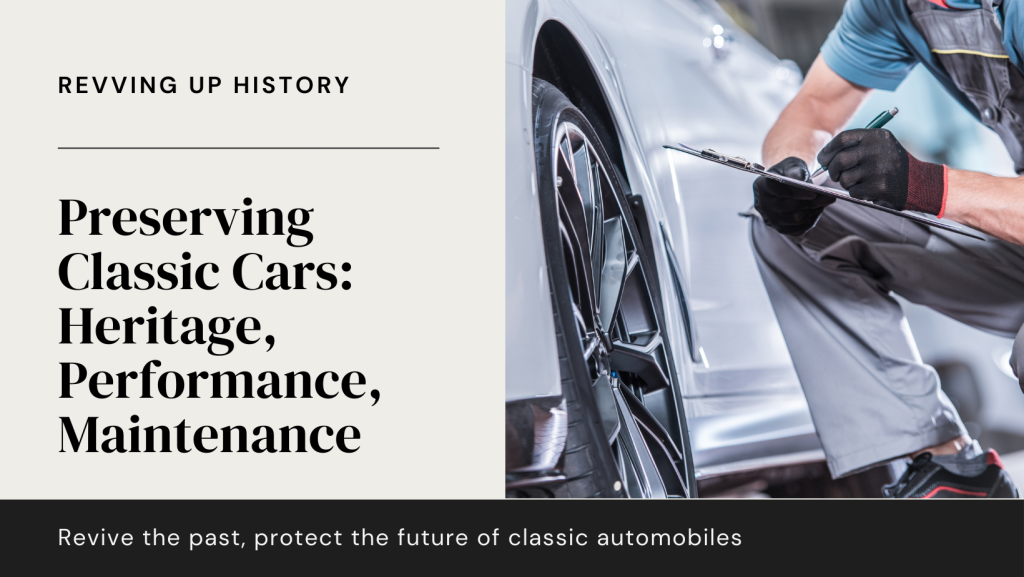Classic cars are prized for their timeless design, historical significance, and unique driving experience. Proper maintenance is essential to preserve their heritage, performance, and value. Here’s how to care for your classic car:
Engine care is paramount for classic cars to maintain performance and reliability. Follow manufacturer recommendations for oil change intervals and use high-quality oils suitable for classic car engines. Regularly check oil levels and condition to ensure proper lubrication and prevent engine wear.
Fuel system maintenance is crucial for classic cars, especially those with carburetors or mechanical fuel injection systems. Inspect fuel lines, filters, and pumps regularly for signs of wear or leaks. Clean or replace filters and components as needed to ensure proper fuel delivery and combustion.
Cooling system maintenance is essential for classic cars to prevent overheating and engine damage. Inspect coolant levels, hoses, and radiator condition regularly. Flush and replace coolant according to manufacturer recommendations to maintain optimal engine temperature and performance.
Electrical system checks are important for classic cars to ensure reliable operation of lights, gauges, and accessories. Inspect wiring, fuses, and connections regularly for signs of corrosion or damage. Repair or replace components as needed to maintain electrical function and safety.
Brake maintenance is critical for classic cars to ensure safe stopping distances and reliable braking performance. Inspect brake pads, rotors, and calipers regularly and replace worn components promptly. Flush brake fluid and inspect brake lines for leaks or corrosion to maintain brake function.
Suspension and steering components should be inspected regularly for signs of wear or damage. Replace worn shocks, struts, and steering components as needed to maintain vehicle stability and handling.
Exterior and interior care is essential for classic cars to preserve their appearance and value. Wash and wax the exterior regularly to protect the paint finish from dirt, UV rays, and environmental contaminants. Clean and condition the interior upholstery and trim to maintain its original appearance and comfort.
Storage considerations are important for classic cars, especially during periods of non-use or winter storage. Store the car in a dry, climate-controlled environment to prevent rust, corrosion, and damage. Use a breathable car cover to protect against dust and debris.
Driving habits can significantly impact the performance and longevity of classic cars. Practice smooth acceleration and braking to minimize wear on mechanical components. Avoid excessive idling and maintain moderate speeds to reduce stress on the engine and drivetrain.
In conclusion, classic car maintenance requires a meticulous approach to preserve heritage, performance, and value. By following these maintenance tips and scheduling regular inspections, classic car owners can enjoy the timeless beauty and driving experience of their cherished vehicles for generations to come.

